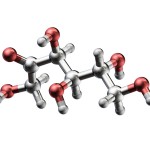Fructose Is Not “Toxic” and Can Help Control Blood Sugar
Fructose, found naturally in fruits and vegetables, has been unfairly singled out as a scapegoat for the obesity epidemic, Canadian researchers say.
The sugar is not “toxic,” does not cause weight gain any different than any other source of carbohydrate when consumed in excess, does not affect blood pressure any differently, and can even help manage blood sugar when consumed in amounts normally obtained from fruit. These were the findings of three extensive systematic reviews that analyzed well-designed randomized controlled feeding trials to evaluate the effects of fructose as compared to other sources of carbohydrates.
These meta-analyses revealed the following:
- Fructose had no significant effect on body weight in an analysis of 31 calorie-controlled trials. Excess calories coming from any source of carbohydrates contributed to weight gain regardless of type.
- Fructose demonstrated no adverse effect on blood pressure when compared to other carbohydrate sources in an analysis of 15 trials, contrary to previously raised concerns.
- Some fructose, up to and around 10 grams per meal, could improve glycemic control (blood sugar control), according to analysis of six trials.
The authors caution that fructose at high doses such as found in many sugar-sweetened sodas (often 25 grams or higher) can increase body weight. However, the weight gain would be attributed to the extra calories consumed and not because of any unique property of fructose.
John L. Sievenpiper, M.D., Ph.D., Russel J. de Souza, ScD, RD, and David Jenkins, M.D., Ph.D., D.Sc., from St. Michael’s Hospital in Toronto, Ontario, Canada, along with their research team published their findings in the February issues of Annals of Internal Medicine, the British Journal of Nutrition, and Hypertension.
Funding for their research came primarily from the Canadian Institutes of Health Research.
Fructose is often singled out in the popular press because of the prominence of high-fructose corn syrup, which is about 45 percent glucose and 55 percent fructose, in a variety of processed foods. Notably, in these reviews, the researchers concentrated on fructose only and excluded studies on high-fructose corn syrup.
The research is presented in the face of controversy because of a previously published commentary in Nature authored by Robert Lustig, M.D., and colleagues, in which they described the sugar as “toxic.” In response to Lustig’s paper, Sievenpiper, de Souza, and Jenkins wrote to the publication saying:
Robert Lustig and colleagues argue that sugar is “toxic,” focusing on the “deadly effect” of the fructose moiety of sucrose. But they are directing attention away from the problem of general overconsumption.Guidelines on healthy eating encourage fruit consumption, and fruit and fruit products are the third-largest source of fructose in the US diet.Our meta-analyses of controlled feeding trials indicate a net metabolic benefit, with no harmful effects, from fructose at a level of intake obtainable from fruit.
Their criticism was published as “Correspondence” in the 23 February issue ofNature accompanied by comments of other scientists. The other comments called the “opinion paper” of Lustig and colleagues “extreme,” “ludicrous,” and “sensationalism.” They also made the point that the paper contained oversimplifications that sought to demonize sugar rather than address the complex factors (such as overeating and sedentary lifestyle) associated with obesity in a way that would serve public health.
In their comment, clinical nutritionists Christiani Jeyakumar Henry, Ph.D., and Viren Ranawana, Ph.D., of the Singapore Institute, wrote that “contribution of sugar towards chronic diseases is more relevant to developed countries than the developing world,” and that it’s more likely that overconsumption of high-glycemic carbohydrates are what mainly contribute to obesity and diabetes.
Fructose, metabolized differently than glucose and other sugars, doesn’t stimulate insulin and is characteristicallylow glycemic. For these reasons, it’s often used in low-glycemic food applications (and mainly in amounts similar to what’s in fruit). It’s also higher in stability and perceived sweetness compared to other sugars, which leads to less use of sugar overall.


No comments:
Post a Comment